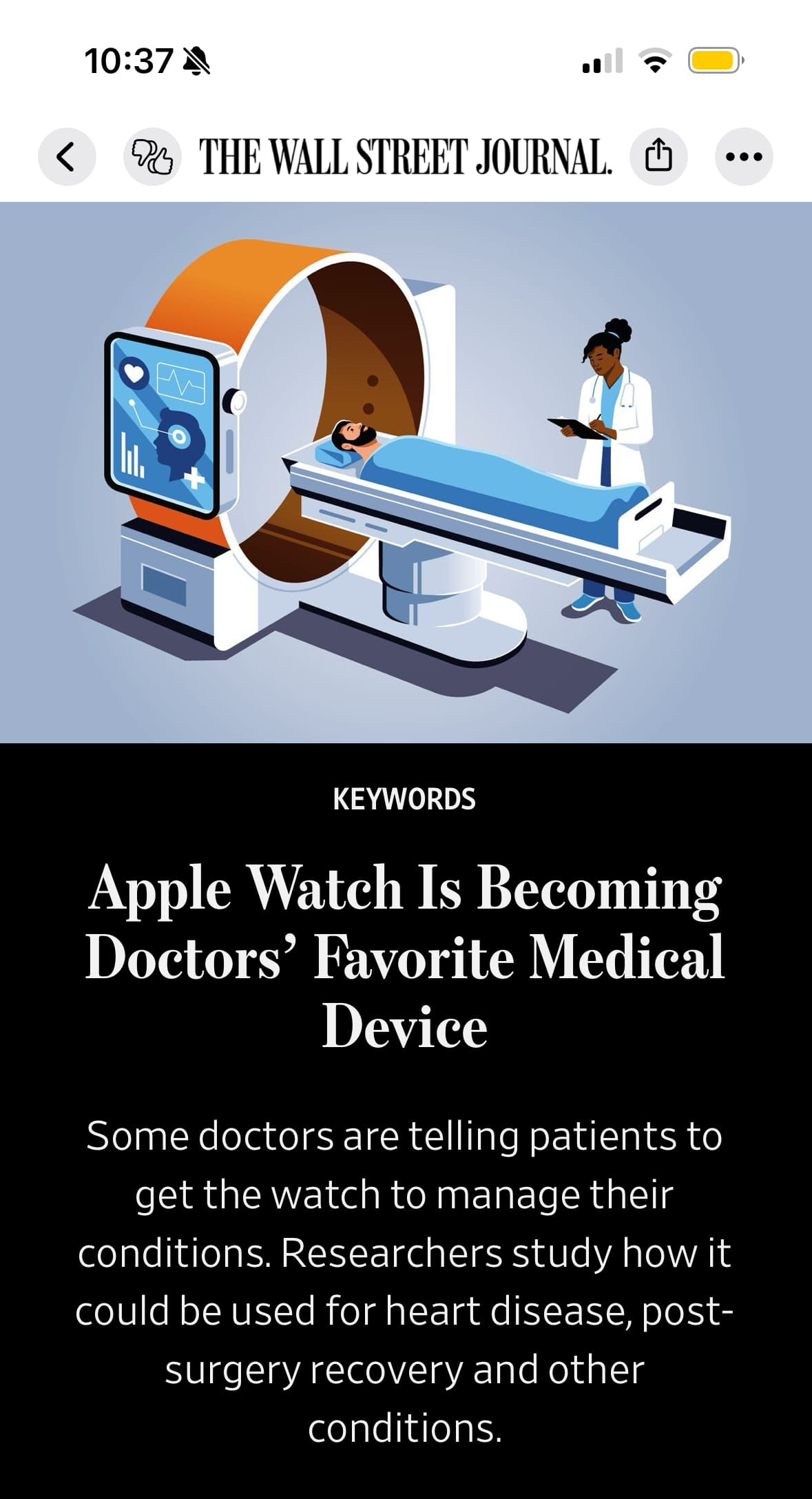Sorry that I did not know how often that happens - it was just listed in some examples and the overall point still stands I think.
The main point I was making is that many things that are bad/urgent - including often from stroke and heart attack and things that lead to fainting - result in a fall - and the Apple Watch is quite good at detecting falls
That means that the alarm and auto call to 911 and emergency contacts happens almost immediately
Not saying things are prefect, but do think that now in 2024 the Apple Watch tech can add a bit of a layer of safety. Do you not think that is the case?
Innovative Fall Detection and other health sensors on Apple Watch prove time and time again to be essential lifesavers
The life-saving potential of the Apple Watch’s Fall Detection has been proven in various real-life scenarios. Here are just a few of some recent instances:
Averting hypothermia: A man at risk of hypothermia activated his Apple Watch’s Emergency SOS, leading to a prompt and life-saving response from emergency services.
Rescuing a senior: A 78-year-old man’s Apple Watch detected a significant fall, leading to immediate emergency aid and potentially saving his life.
Car accident rescue: Kacie Anderson, with her baby, relied on her Apple Watch to call for help after a severe car accident, highlighting the watch’s critical role in emergencies.
Health alert: Heather Hendershot received an important health warning from her Apple Watch, emphasizing its capabilities beyond fall detection.
Technology reporter’s experience: Toralv Østvang’s Apple Watch alerted emergency services after detecting his immobility from a fall, showcasing its importance in emergency response by contacting the police, who contacted his wife and then told the paramedics where to find him.
Hotel room incident: Bayla Belle Christianson’s Apple Watch, with its Fall Detection, summoned help after she lost consciousness, underscoring the feature’s life-saving potential.
